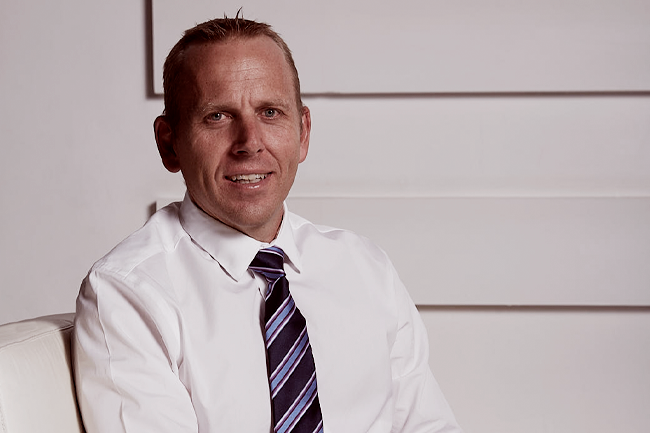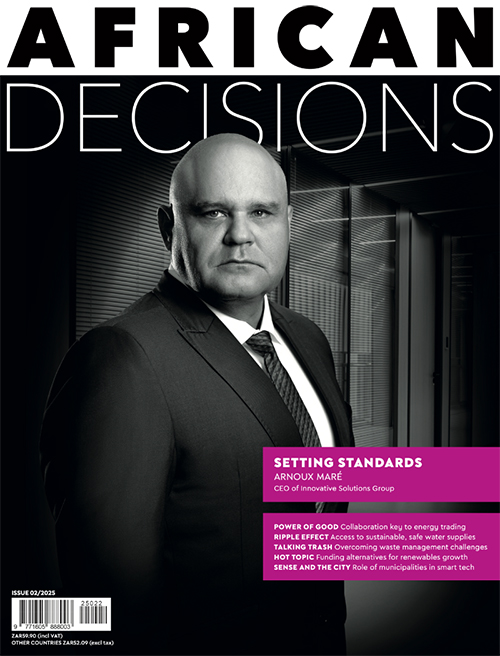Digital transformation has become one of the highest priorities for Africa following the COVID-19 pandemic, which has reversed or halted multi-sector development progress. Without crucial digital highways, the continent will be unable to effectively address its need for abundant and affordable connectivity, essential for delivering broadband, which will drive growth strategies and innovation. Governments cannot do this alone. This is why a private-sector player such as the pan-African Liquid Intelligent Technologies group, which has already laid 73 000 km of fibre network, is being depended on to close the digital gaps.
Liquid Intelligent Technologies, previously known as Liquid Telecom, recently rebranded, but this is not simply just a name change. Instead it’s an evolution from being a pure connectivity provider to a technology service provider, says Liquid Intelligent Technologies South Africa CEO Deon Geyser. ‘We have extended our value proposition to deliver many more digital solutions and services to cater to the increasing demand for technologies among businesses. It also comes with a new promise, which is to build a digitally connected future that leaves no African behind.’
Liquid has been at the forefront of the continent’s digital transformation for two decades. As such, it has built a resilient business model that runs smoothly on the cloud, and all its opcos operate on the same business model. This is why, when lockdown scenarios came into play last year, the business was able to allow its employees to work from home without any technical challenges and thus continue to service the needs of its clients, some of which provide essential services.
Over the years, Liquid has established a value chain of strategic partnerships with global brands that allow it to offer cloud and managed security services, unified communications, SD-WAN, managed network service applications and professional services. It is this stable legacy that is being depended on as the foundation for maintaining its digital infrastructure under the sub-brand of Liquid Network.

Another sub-brand, Liquid Sea, complements the expansion of its connectivity and wholesale offering, which caters to customers’ sub-sea and international wholesale business needs; and, through Liquid Satellite, affordable high-speed connectivity is expanded to rural/remote communities. Liquid Business is yet another sub-brand, offering various managed services that cater to evolving business needs such as on- and off-site (remote) working. The package is further expanded with the addition of Liquid Cloud and Liquid Cyber Security, which together bring world-class intelligent cloud and security advances to the market.
‘Liquid also caters for individual and SME needs with Liquid Home,’ says Geyser. ‘This is pertinent in the wake of the pandemic, as we provide them with access to a world of content, information and knowledge to help them remain relevant and competitive. ‘COVID-19 was a catalyst in the increased adoption of digital technologies on the continent. It forced many businesses to move beyond their initial hesitation and change their approach to allow their employees to work from home, creating a need for a hybrid model to cater for digital/remote and on-site working,’ says Geyser.
This hybrid way of working is fast becoming a norm, and organisations that are still lagging in deploying effective work-from-home policies are in danger of becoming redundant, he adds. The effectiveness of technologies such as AI and the internet of things has brought about improved healthcare, elevated online educational material, and opened the door to life-changing social benefits for African communities, irrespective of location, age or gender.
The Fourth Industrial Revolution has been a game changer in Africa, especially since the continent has long trailed behind more developed continents in terms of digital adoption. However, says Geyser, ‘the pace of technological advancement and infrastructure build-out is faster in Africa because we can leapfrog older technologies that other developing nations will need to update’.
Throughout 2020, Liquid has reaffirmed its position as a company committed to advancing the continent’s digital future. Notable initiatives include the acquisition of the Samrand data centre in Centurion, South Africa, and the partnership with X’s Project Taara using a revolutionary new optical wireless technology to provide high-speed connectivity in remote communities in Kenya. ‘This has increased the availability of digital solutions that helped businesses seamlessly transition into the new normal,’ says Geyser.
Despite the pandemic, Liquid’s further investment into the continent did not cease or slow down. Instead, it adapted its investment to ensure that it was catering to the evolving needs of customers. One example is cybersecurity. ‘Employees working from home increased the risks of cyberattacks, but our cybersecurity offering launched last year, which offers end-to-end managed services for digital-security solutions helps businesses secure their organisation from the cloud to the desktop,’ says Geyser. ‘We are therefore protecting customers at every intersection of their digital transformation journey.’

Liquid’s vision is to create a digitally connected future that leaves no African behind. To fulfil this, the company has been extending its award-winning network connectivity in existing markets and expanding into newer territories. It recently completed two vital digital corridors, NLD 5 and 6, connecting Durban to Cape Town via the inland route. This increased connectivity will ensure that Liquid can partner with national and local governments as well as other businesses to bring substantial social and economic benefits to the communities.
Growth, from a group perspective, also came with Liquid’s expansion into the DRC. That fibre connects Muanda, on the Atlantic coast, to cities as far as Dar es Salaam, Tanzania, and Cape Town, South Africa. ‘This is a first for the country, as no operator currently offers such a seamless link across the continent. These activities are essential for the development of digital economies, after all it is Liquid’s backbone infrastructure that allows businesses to advance and move into the cloud.’
Importantly, Geyser points out that the cloud is the only way to realise cost benefits because of its inherent flexible and scalable nature. ‘Small to medium businesses were previously unable to invest in technologies like CRM systems and billings, but the cloud has revolutionised the entire approach by making these technologies readily accessible. The pay-as-you-go model has allowed them to explore and invest in these services depending on their evolving needs,’ he says.
‘However, the biggest cost benefit of migrating to the cloud is that businesses get access to the research and development that organisations like Microsoft undertake, thereby having easy access to new features and updates that they would otherwise have had to invest in themselves.’ This goes to innovation, something that Liquid is also deeply committed to through Liquid Labs, the R&D arm of the group and in which it invests considerably.
Overall the latest Liquid value proposition makes the statement, along with its new branding and identity, that the company is presenting a complete value chain of end-to-end solutions for businesses, from connectivity to digital services. ‘We are uniquely positioned to utilise our infrastructure to accelerate the availability of new, intelligent technologies, including the high computing power of the cloud,’ says Geyser. The new Liquid is not only facilitating African businesses’ tech-change processes, but also broadening the ability for all to evolve economic and social environments, and optimise market interactions. This in turn sets the reignition of growth journeys that will put Africa back on track to meeting developmental goals and being able to introduce pivotal new strategies that are life-changing for the future.
As Geyser puts it, ‘we’re excited to forge ahead on this new and exciting journey, and to execute on the vision of bringing technological opportunities to the market with a highly differentiated product set, supported by our existing infrastructure and digital innovation’.
















